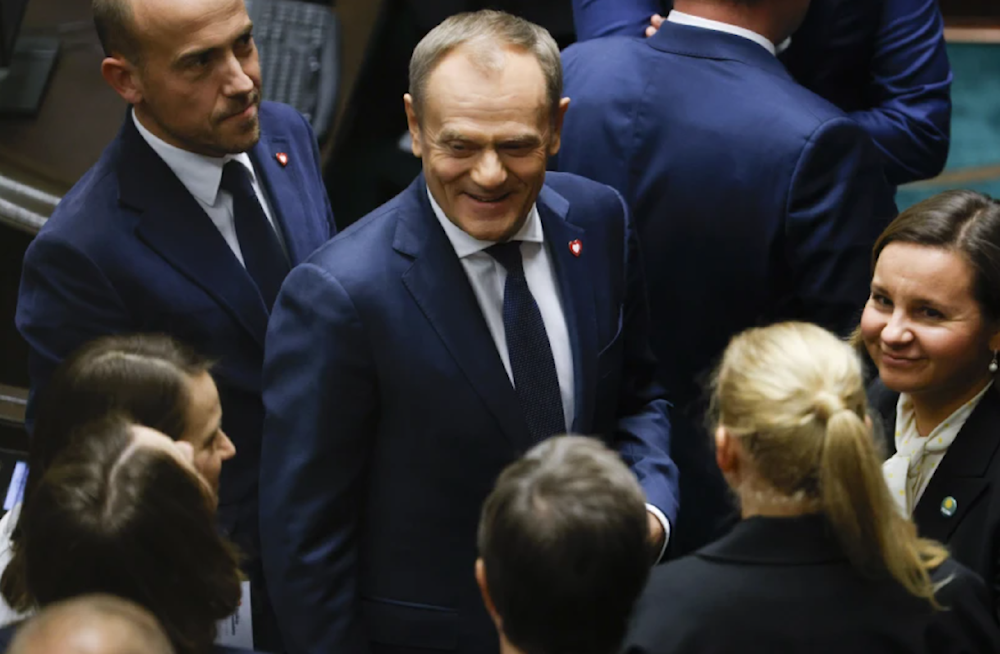Donald Tusk to be sworn in as Polish PM on Wednesday
Earlier in the day, the Polish lower house, Sejm, voted 266-190 to reject Mateusz Morawiecki's cabinet.
-

Donald Tusk, leader of Poland's opposition party reacts after Polish Prime Minister Mateusz Morawiecki lost a confidence vote at the parliament in Warsaw Poland on December 11, 2023. (AP)
After the existing administration failed to obtain parliamentary backing, Polish President Andrzej Duda will choose opposition leader Donald Tusk as Prime Minister on December 13, according to Polish Presidential Chancellery Chief Grazyna Ignaczak-Bandych.
Earlier in the day, the Polish lower house, Sejm, voted 266-190 to reject Mateusz Morawiecki's cabinet. Soon after, the parliament proposed former European Council President Donald Tusk for prime minister.
Ignaczak-Bandych wrote on X, that "At the invitation of Polish President Andrzej Duda and Sejm’s approval, a meeting with Prime Minister Donald Tusk took place. It has been decided that after receiving the vote of confidence, the new government will be sworn in on Wednesday at 9 a.m. [08:00 GMT] at the presidential palace,"
Tusk will now offer his own cabinet set. Tusk's cabinet will have two weeks after being sworn in to make a keynote speech to parliament, which will then consider voting a vote of confidence or no confidence in him. If Tusk also receives a vote of no confidence, the Polish president will be able to appoint a new prime minister himself.
In the October legislative elections, the PiS party, which had previously ruled Poland, gained 194 seats in the 460-member Sejm and declared victory. Opposition parties, on the other hand, gained more than half of the seats and formed a coalition, with Tusk as their candidate.
The nations of Poland, Slovakia, and others located in Central and Eastern Europe, who have been fierce advocates of Ukraine in the conflict, are now facing re-election challenges and other domestic matters - making support for Ukraine fade away little by little.
In September, the Prime Minister of Poland announced that they would cease sending weaponry to Ukraine in order to prioritize their own defense. The decision came shortly after Warsaw called in Ukraine's ambassador, leading to a dispute over grain exports.

 2 Min Read
2 Min Read








